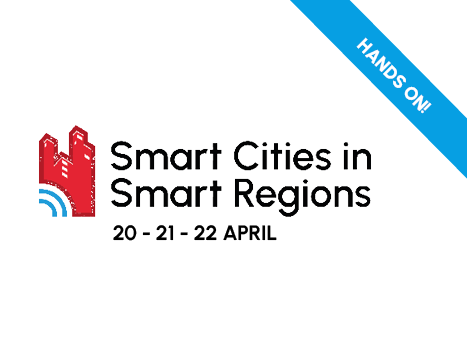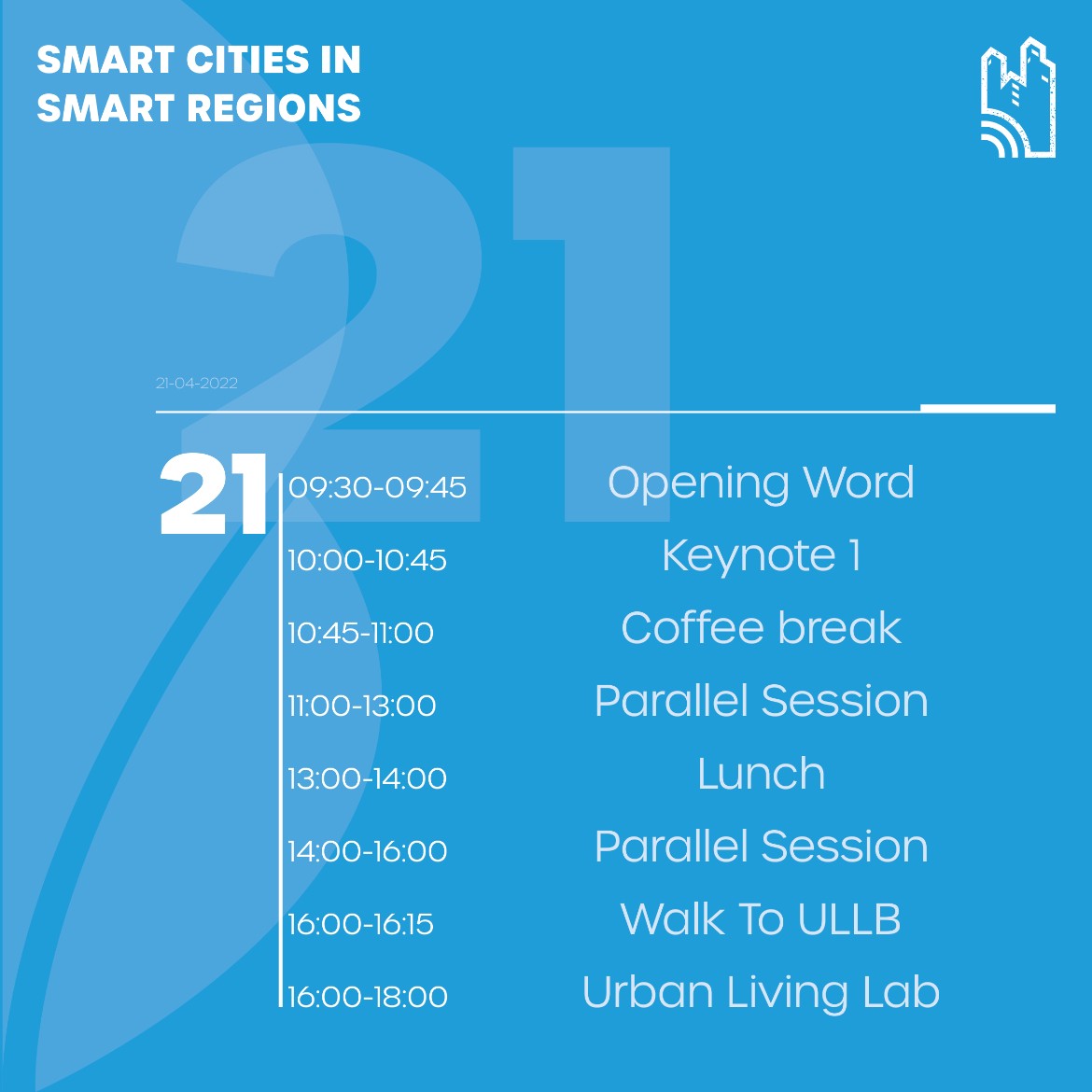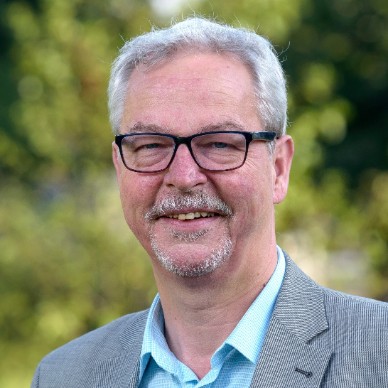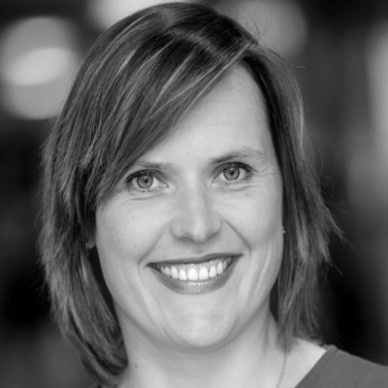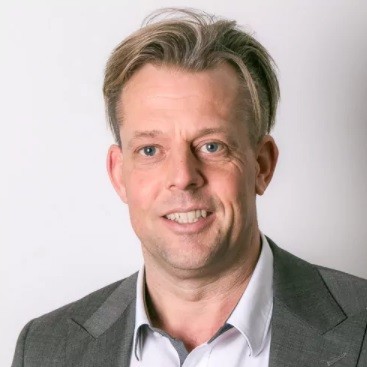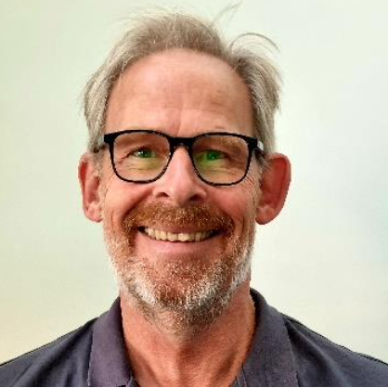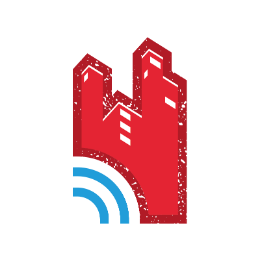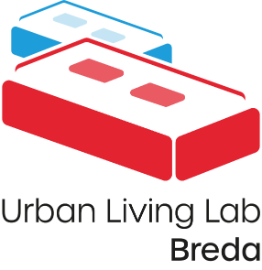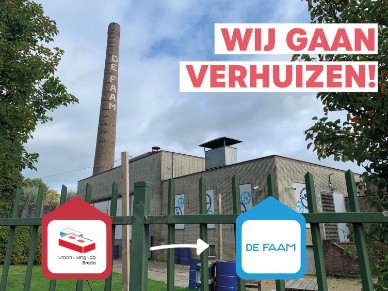08.30 - 09.30
Registration and coffee
09.30 - 09.45
Openings words mayor of Breda
09.45 - 10.00
Openings words Avans Hogeschool board & Breda University of Applied Sciences board
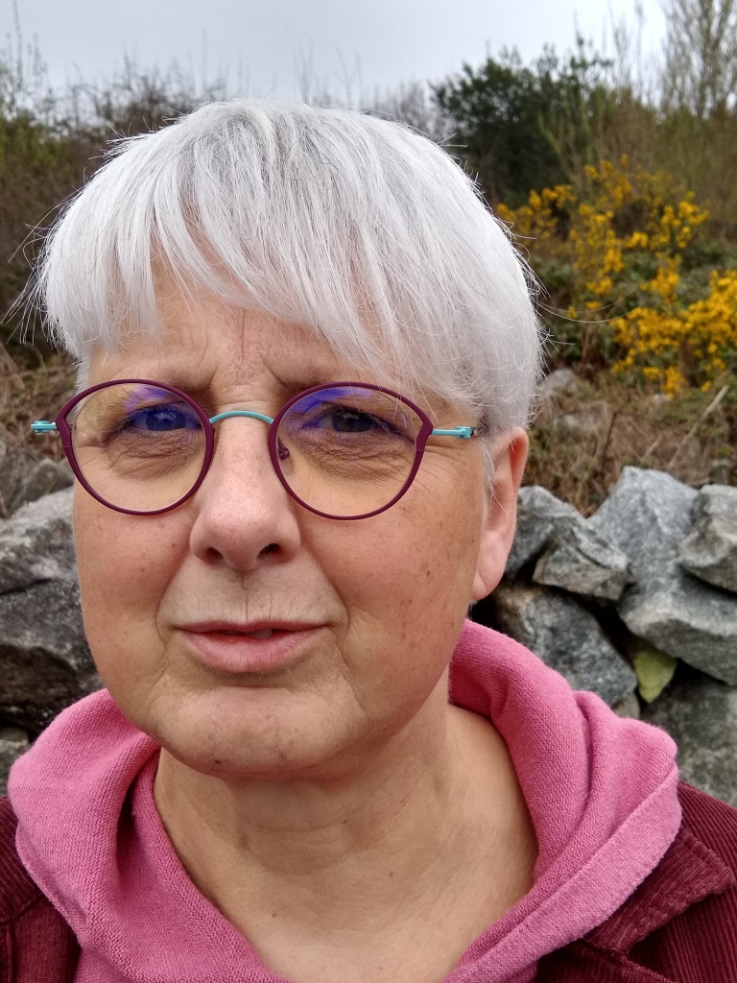
10.00 - 10.45 Keynote: Clarine van Oel
Unleashing VR’s participatory power to speed up the energy transition
The high cost for energy, our dependency of Russian gas and the need to close down gas
extraction in Groningen urges the need to speed up the energy transition. Typically, national
and international policies advocate to increase the energy efficiency of dwellings and with a
total amount of 7.5 million in the Netherlands, there is ample opportunity. However,
improvements in energy efficiency of the social housing stock are typically low and the pace
is too low to meet up with the ambitious EU goals for energy efficiency. So far, the energy transition has been addressed from a mainly technological perspective. In social housing, sustainable renovation requires the consent of tenants as typically the rents will be increased upon renovation. The topic of tenant acceptance is often mentioned as a problem, but in sustainable renovation, tenant acceptance and behaviours are typically addressed from a rational perspective.
In this keynote, the approach of two complementary projects, VR-Renovate and uVITAL (https://vr-renovate.tudelft.nl/ ) address tenant acceptance as a communication problem. Communication needs to go beyond informing as knowledge and understanding individual options can influence people’s perception and acceptability and acceptance of energy measures. In both projects we use immersive visualization design models to communicate renovation measures to tenants in a series of Living Labs. We use interactive, game-based immersive visualizations to explain complex information and not rely on the standard approach of written text that is typically difficult to understand. In particular, spatial information is hard to parse and it is difficult to imagine the result of a renovation. The Living Labs are developed as practice-based research, and in close collaboration with professionals from practice. First evaluations not only show that tenants feel empowered and taken seriously. Contractors also report that tenants were well prepared, which smoothened the renovation process.
Bio:
Clarine van Oel is an environmental psychologist and associate professor in the Department of Architecture & the Built Environment at Delft University of Technology, the Netherlands. In 1989, she obtained her MSc in psychology at the Free University in Amsterdam. She obtained her PhD in 2001 at the University of Utrecht. Between 1989 and 2006 she mainly conducted epidemiological and user-driven research in Healthy Environments (TNO Bouw in Delft), public health (Amsterdam Medical Center), and psychiatry (Utrecht Medical Center). Since 2006, she investigates user-preferences for design solutions using visual display methods. She was granted together with Brazil, UK and Germany the NWO project uVITAL project as part of the Trans-Atlantic-Platform “Social Innovation” (2019). Together with prof.
E. Eisemann (co-applicant) she was granted the VR-Renovate project (2020).
11.00 - 13.00 Parallel sessions
Theme: Active citizenship & Smart city infrastructure
A1: Development of smart cities, regions and public services
Chair: Steven van der Minne
Steven van den Oord & Ben Kokkeler
Legal mumbo jumbo: liability in network governance of public service delivery networks
We present a conceptual paper to advance our understanding of network liability in public service delivery networks. We address who is responsible, and how the network properly needs to compensate clients if something goes wrong.
Ondrej Mitas
Connecting tourist and resident experiences of cities
Tourism has dramatically changed cities, leading to critical questions about how cities can remain quality places to live and visit. We present a model proposing that interventions affect both tourist and resident experiences through direct and indirect social interactions.
Theme B: Design, Technology & Digitalization
B1: Urban futures
Chair: Eeva Aarrevaara
Peter van Waart
Valueing the Smart City: a study of the values of different stakeholders regarding Living Lab Scheveningen
This article describes a study that investigated how different stakeholders experience the ‘smart city’ area of Living Lab Scheveningen in The Hague, The Netherlands. Residents, visitors, entrepreneurs, and governments were included in the study, which resulted in a list of ten values at stake.
Sohvi Sirkesalo
Enriching Participatory Innovation in Future Smart Cities
Participatory innovation involving all actors of the quadruple helix is often an under-exploited opportunity in smart city development. Knowledge Transfer Charter boosts initiatives to co-create, co-innovate, develop and demonstrate new smart city solutions providing unique way to create new value.
Tuija Toivola
Robot service as a smart Click & Collect solution in the new heart of Helsinki
The number of customers in urban centers and shopping centers has decreased as remote work has increased and the movement of people in shopping centers has decreased. Our study focused on robot’s role in customer experience creation in ecommerce click & collect domain as a part of delivery services.
Theme: Circular Economy & Entrepreneurship
C1: Circular Economy
Chair: Kaj Morel
Katerina Medkova
Case BIOREGIO – Boosting Bio-based Circular Economy
International cooperation and knowledge exchange, including sharing tested solutions, speeds up the transition towards a bio-based circular economy.
Kaj Lindedahl
Circular City Adaptation by Co-activity company case
The adaption and innovation case was trying out new sustainable and environmental friendly solutions for the side streams produced in coffee shops and coffee breweries. The development and testing showed that there is hidden potential in ground coffee and silver skins left from the roastery process.
Marjut Villanen
Case CECI – Citizen involvement in circular economy implementation
In addition to institutional and political decisions and recommendations, also practical solutions are needed to easily involve citizens in the circular and sharing economy. The sharing of good practices between different regions can facilitate the implementation of sustainable practices.
14.00 - 16.00 Parallel sessions round two
Theme: Active citizenship & Smart city infrastructure
A2: Urban infrastructures and neighborhoods
Chair: Meri Jalonen
Steven van den Oord
The rise of a data platform in the rural area of North-Brabant: a single case study of the citizens’ cooperative Midden-Brabant Glas
A single case study to describe the interaction processes within and among three analytical levels of Midden-Brabant Glas in its attempt to deal with the complexity and resistance to change from infrastructure to a data platform.
Eeva Aarrevaara and Mirja Kälviäinen
Map based research for investigating the urban hubs
A digital map-based questionnaire has been used in a suburban area related a research project for user information acquisition. The research project is to the urban hacks that experiment and test different improvements and services in the existing suburban environment with the real residents.
Steven van den Oord
The influence of neighborhood characteristics and safety: a cross-neighborhood comparison
Using interview data of citizens involved in project “Wijkmakers on the move” and survey data of “Leefbaarheid en Veiligheid” survey this article examines the influence of neighborhood characteristics on neighborhood safety in four neighborhoods of the municipality of Den Bosch.
Theme B: Design, Technology & Digitalization
B2: Digital technologies and data for urban development
Chair: Ben Kokkeler
Ossi Laakkonen
Digital Twin - More than just Building Services and Civil Engineering
Digital Twin of building requires tight integration of different tools, systems, and services. It is based on digital model of building and data gathered from various sources such as building automation system and IoT sensors. Visualization of such data can be done with various ways.
Bruno Ávila Eça de Matos
State-of-the-Art of the Urban Digital Twin Ecosystem in the Netherlands
This paper aims to assess the existing urban digital twins in the Netherlands undertaken by both the public and the private sector in order to draw insights about the challenges, opportunities and the use of digital twins within the country.
Juho-Pekka Virtanen
Exploring city information models & GIS as data via PowerBI
This case study presents the utilization of PowerBI business data analytics platform with CityGML models and urban GIS data. The aim is to allow the discovery and analysis of the semantic information contained in these data and support the development of smart cities and urban digital twins.
11.00 - 15.00 Workshops
11:00-12:00 Workshop 1
Building inclusive smart cities
Nina Nesterova
Smart city technologies and solutions are developing with a high pace cross-over different economy sectors. They are becoming increasingly available for different population groups, focusing on the sustainability; cost efficiency and comfort. However often they require a certain level of investment and/or digital skills and competences to operate, which inevitably leads to the exclusion of specific population groups. This session explores in an interactive workshop format the roles of local authorities, service developers, operators and users in ensuring that digital mobility will be inclusive and accessible for all. The session is a collaborative effort of the three Horizon 2020 funded projects, INDIMO, DIGNITY and TRIPS that are all addressing the question of inclusive and accessible digital mobility. The three projects are in their final year and aim to transfer their findings to the relevant stakeholders implementing digital mobility services. Therefore, the projects can provide a wealth of findings directly useful to stakeholders and public authorities. The session aims to raise awareness on the importance on inclusiveness for smart cities and to pitch the key findings/results of these three European projects.
12:00-14:00 Workshop 2
Digitization & Smart Technology
Michael van Hulst
The Urban Living Lab Breda works together on city-wide social themes on the basis of a 'quadruple helix'. This collaboration between government, knowledge institutions, companies and residents should ensure that value is created for everyone present in our city. This requires an innovative approach with the society. Digitization is one of the biggest revolutions and already present in our society. In the near future, digitization and further technology can and will be applied even more. We will pay attention to the way we apply. Ethically responsible handling of data and protection of privacy are important themes. Citizens' better design in political decision-making can be improved by involving all parties in the development of our city as early as possible. The energy transition and current prices are a clear example. How can we make interests as visible as possible? Especially the opportunities. How can we develop instruments to develop and ultimately develop policy to express the value in a divided manner? In this co-creation workshop we will meet in conversation to discuss and further shape the concept program lines of the city-wide theme 'Digitalization & Tech'.
14:00-15:00 Workshop 3
Decision support model
Arie Voorburg
Our world is more versatile, more dynamic, more connected and less predictable than in the past. We are confronted with increasing pressure on our 'Earth System', we find ourselves in an unstable economy, social processes of exclusion and disadvantage, geopolitical structures in flux, changing demographics and resource scarcity.
But these aspects are also potential opportunities and development perspectives; especially when we include nearby developments.
NOW is the momentum to take on our role together with partners in our network to strengthen the city, region, company as a hub for innovation, social renewal and (literally) offer the space to develop.
INSIGHT
This requires a different approach: a new methodology to comprehend the complexity of cities and integrated area development, and in doing so, to go through the right transformations. The Decision Support Model offers the opportunity to generate knowledge and information about the complexity and dynamics of current and future society. The model makes the city, district or neighborhood transparent, understandable, interactive and dynamic.
The Decision Support Model 'describes' in a systemic way in which cities and businesses, for example, can become resilient and resilient. An 'agenda' is also being created to discuss (financial) participation with potential benefit holders.
Creativity Pools is a non-profit advisory organization. We work with talented students from Erasmus University Rotterdam, Leiden University and Delft University of Technology to solve complex issues.
15:00-16:00 Workshop 4
Future City Transport Solutions from EU 2 Seas MOBI-MIX Project
Martin Garratt
- The objective of the Inter-Reg 2 Seas MOBI-MIX Project is to improve the collaboration between public authorities and private smart mobility providers, to more effectively implement new, innovative mobility solutions, ultimately leading to an increase of low-carbon technologies.
- Join us in the workshop to hear about 5 novel pilot projects for future low carbon urban transport, from cities in north west Europe and to share your own experiences in an informal roundtable workshop.
16.00 - 18.00 Visit Urban Living Lab Breda and Robotics
16.00 - 18.00 The Marketplace
Students & networkleaders will show & tell their work at the market.
On the market:
- Storygames of Future Cities (Smart Cities, Green City, Spirituality, Future of Work, City Farming) by students Communication & Multimedia Design
- Urban Living Lab Breda, the story
- Urban Living Lab Junior, Power of the Future
- Urban Living Lab: Places of cooperation to support inhabitants
Departing form our main goal of contributing to a broadly defined 'sustainable city', one of the activities of Urban Living Lab Breda is supporting local people to design and carry out improvements in their environment. Important driver here is the notion that parts of the city prosper where other parts lag behind. In these latter neighbourhoods there are higher unemployment, more health issues, poorer chances for youth and criminality, partly as a result of a local housing market that is dominated by cheap, (social) rented houses. We organise these activities in so called 'places of cooperation' in the districts and neighbourhoods in the city. Here locals have the lead, students, teachers of the local universities of applied science and other local institutes for vocational education and volunteers of ULLB give them a helping hand when needed and support their agendasetting with research and polls. We work according to the principles of the method of 'asset based community development (ABCD). - Energy transition by Han van Osch
There is a lot going on at Avans University of Applied Scienced on the theme energy transition. A few examples are the development of a master Energy & Material Transition, the development of a research agenda in the field of energy transition, several education modules and a growing energy transition community. Cocreation and an interdisciplinary approach are the key to success - Digital Twin Breda by Michael van Hulst
Urban environments will undergo a huge transition in the coming decades. Societal challenges in the field of climate, accessibility, safety and social connection are addressed faster, more extensive, more complex and more dependent on each other. How do you as a city deal with this? And how do you involve everyone involved in this? Digital Twins provide support in creating insight, developing scenarios and interacting with stakeholders to develop policy. On the knowledge market we show the application of Digital Twin in Breda - Green Care urban farming project with Atelier De Tussenruimte
Green Care is a sustainable social-oriented project, aimed at combining together mental health and urban farming in a way that could help people find wellbeing and harmony in a green environment.
Drinks & bits by Urban Living Lab Breda and Robotics
